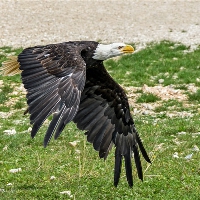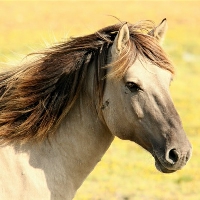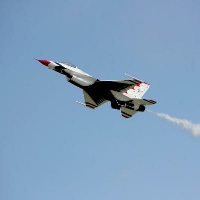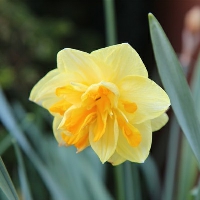中考英语复习知道完形填空1
2010年中考英语复习知道完形填空1本文简介:2010年中考英语复习知道完形填空1Itisathousandkilometersacrossthatdesert(沙漠).Theroadis1nearlyalltheway.Sometimesthereisadeepsand.Adrivermustthenputhisfootdownhardand
2010年中考英语复习知道完形填空1本文内容:
2010年中考英语复习知道完形填空1
It
is
a
thousand
kilometers
across
that
desert
(沙漠).
The
road
is
1
nearly
all
the
way.
Sometimes
there
is
a
deep
sand.
A
driver
must
then
put
his
foot
down
hard
and
drive
through!
There
are
three
small
2
along
the
way.
Vick
reached
the
first
place
at
ten
o’clock
p.
m.
He
had
his
3
in
a
little
restaurant
(餐馆)
there.
It
was
a
warm
4
in
August.
Vick
wanted
to
5
through
the
night.
The
nights
are
warm
enough
in
August,but
the
days
are
very,very
6
.
He
left
the
restaurant
at
11:
30
and
drove
over
7
hours.
There
wasn’t
a
moon,but
the
8
were
wonderful.
There
was
nothing
else
on
die
road.
Vick
thought,“It’s
an
empty
desert.
No
tree,house,man.
“He
could
9
the
endless,white
road
in
the
car’s
headlights(车灯).
A
million
stars
looked
down
on
him.
It
was
two
o’clock
in
the
morning.
Vick
stopped
the
car.
He
was
two
hundred
kilometers
from
the
10
town:
“I’ll
light
the
cooker(
炊具),“he
thought,“and
make
some
tea.
“He
got
out
of
the
car.
He
heard
some
sounds,ten
or
fifteen
meters
11
.
He
could
not
see
anything
in
the
darkness(黑暗).
A
man
said,“Good
morning.
It’s
a
12
morning,isn’t
it?“The
man
came
forward
(向前),out
of
the
darkness;
out
of
the
desert.
Vick
did
not
move.
The
man
said,“You
are
going
to
13
some
tea,aren’t
you?
I
often
get
a
cup
of
tea
at
this
time.
It’s
two
o’clock.
Cars
always
14
near
here
at
this
time.
Sometimes
I
get
a
15
.
Now
listen,and
I’ll
tell
you
a
story.
Then
you’ll
give
me…“1.
A.
short
B.
good
C.
busy
D.
well
2.
A.
cities
B.
hotels
C.
villages
D.
towns
3.
A.
tea
B.
supper
C.
lunch
D.
breakfast
4.
A.
night
B.
day
C.
season
D.
month
5.
A.
live
B.
stay
C.
drive
D.
walk
6.
A.
cold
B.
cool
C.
hot
D.
warm
7.
A.
two
B.
seven
C.
ten
D.
fourteen
8.
A.
trees
B.
animals
C.
stars
D.
clouds
9.
A.
see
B.
ride
C.
pass
D.
find
10.
A.
home
B.
other
C.
next
D.
last
11.
A.
about
B.
from
C.
far
D.
away
12.
A.
noisy
B.
lovely
C.
sleepy
D.
sunny
13.
A.
eat
B.
make
C.
cook
D.
drink
14.
A.
leave
B.
stop
C.
meet
D.
run
15.
A.
bread
B.
car
C.
rest
D.
meal
名师点评
这是关于一个司机独自一人在茫茫沙漠中开车的故事,它着重描写了沙漠的荒无人烟,表达了主人公的孤单与艰辛,而如果这时在黑暗中真的走出一个人来,那会怎样呢?-
答案简析
A。沙漠中的路不可能好(从下文也可知)或繁忙,所以只有用short,well有语法错误。
D。从下文可知。
B。下午十点钟当然是吃晚饭。
A。上下文都可看出这时是夜晚。
C。从下文可看出他想趁着天不太热开车。
C。从常理和but一词可知白天天气很热。
A。从上文的11:30和下文的2:00很容易推断出。
C。天上没有月亮,但是有星星。其他选项天上不可能有。
A。除了天上的星星,他还能看到的那就是车灯下无边无际的白茫茫的路。不能用find,因为意思不符合。
C。下一个城镇是他的下一个目标。
D。fifteen
meters
away
距……远。
B。只有选lovely
。
B。make
tea
泡茶。
B。常有司机把车停在这儿。
D。有时不仅仅可以喝到茶,还能吃一餐呢。Bread是不可数名词。
Mr.
Jackson
was
on
duty
that
evening.
It
was
1
and
there
was
thick
snow
outside.
So
2
people
came
to
the
hospital
and
he
could
__3
on
the
bed
in
his
office
and
soon
he
went
to
4
.
Suddenly
someone
knocked
at
the
door
and
it
woke
him
up.
He
got
up
and
5
the
door.
In
went
an
old
man.
His
wife
was
6
and
he
asked
the
doctor
to
go
to
look
her
over.
It
was
still
7
when
Mr.
Jackson
came
out.
The
old
farmer
walked
fast
and
he
hardly
8
him.
It
was
difficult
for
him
to
walk
on
the
snowy
roads.
When
he
got
to
the
man’s
house,he
was
very
9
.
He
looked
over
the
old
woman
and
found
she
had
a
bad
cold.
He
gave
her
some
10
and
began
to
return
to
the
hospital.
The
wind
was
blowing
strongly
and
he
had
to
walk
11
so
that
he
wouldn’t
fall
over.
And
when
he
was
near
the
hospital,he
had
a
12
in
his
foot.
He
walked
slowly
and
at
last
he
went
into
his
office,He
13
his
shoe
and
looked
at
his
foot.
There
was
much
blood
(血)
on
it.
He
14
he
stepped
on
(踩)
a
broken
bottle.
He
looked
at
his
shoe
carefully
and
said
to
15,“Luckily,it
didn’t
prick(扎)my
shoe!”
1.
A.
hot
B.
warm
C.
cool
D.
cold
2.
A.
few
B.
a
few
C.
some
D.
many
3.
A.
play
B.
dance
C.
lie
down
D.
sit
down
4.
A.
work
B.
sleep
C.
study
D.
write
5.
A.
closed
B.
mended
C.
opened
D.
broke
6.
A.
healthy
B.
strong
C.
weak
D.
ill
7.
A.
snowing
B.
shining
C.
raining
D.
singing
8.
A.
got
on
well
with
B.
caught
up
with
C.
looked
after
D.
listened
to
9.
A.
sorry
B.
afraid
C.
strange
D.
tired
10.
A.
medicine
B.
food
C.
water
D.
sugar
11.
A.
quickly
B.
carefully
C.
noisily
D.
heavily
12.
A.
hole
B.
sock
C.
pain
D.
pill
13.
A.
took
off
B.
put
up
C.
burnt
D.
sold
14.
A.
forgot
B.
remembered
C.
understood
D.
was
told
15.
A.
him
B.
her
C.
them
D.
himself
名师点评
这篇短文讲的是一个好心的医生在下雪的夜里出诊,由于天黑和匆忙的缘故,他把自己的脚扎伤了,而他却幽默地安慰自己——幸好鞋子没扎坏。
答案简析
1.
D。根据下文的下雪,故得知是一个寒冷的天气。
2.
A。由于天气的缘故,几乎无人在晚上出来看病。few和little都表示否定,但little用来修饰不可数名词,故不选。
3.
C。没有病人,医生便躺下休息了。
4.
B。go
to
sleep
表示“睡着”。
5.
C。
6.
D。因为生病才要请医生。而weak只表示虚弱,未必就得看医生。
7.
A。根据上文的天气情况可知外面仍在下雪。
8.
B。catch
up意思是“跟上,赶上”。
9.
D。因为下雪路面不好行走,再加上走得快,所以走得很累。
10.
A。医生看完病后,一定会开药。
11.
B。路很难走,所以不得不小心。
12.
C。根据下文他的脚流血了,证明这里他应该感到疼痛。
13.
A。根据文意,他是在脱掉鞋子检查自己的脚。
14.
B。
15.
D。这里别无他人,故他是
say
to
himself。
A
thousand
years
ago,Hong
Kong
was
covered
by
a
thick
forest.
As
more
and
more
people
came
to
1
in
Hong
Kong,these
trees
were
cut
down
and
burnt.
Now
there
is
2
forest
left,though
there
are
still
some
small
areas(地方)
covered
with
trees.
We
call
these
woods.
Elephants,tigers
and
many
3
animals
were
living
in
the
thick
forest.
When
people
came
to
live
in
Hong
Kong,the
4
began
to
die
out.
Early
farmers
grew
rice
and
5
pigs
and
chickens
in
the
valleys.
They
cut
down
the
trees
and
burnt
them.
They
needed
6
to
keep
themselves
warm
in
winter,to
cook
their
food
and
to
keep
away
the
dangerous
animals.
Elephants
quickly
disappeared(消失)
because
there
was
not
enough
food
for
them.
7
did
most
of
the
wolves
and
tigers.
Monkeys
and
many
other
animals
soon
8
in
the
same
way.
You
might
think
that
there
are
no
longer
any
animals
in
Hong
Kong
9
in
the
zoos.
There
are
still
about
36
different
animals
10
there.
One
of
the
most
interesting
of
Hong
Kong’s
animals
is
the
barking
deer.
These
are
beautiful
little
animals
11
a
rich
brown
coat
and
a
white
patch(补丁)
under
the
tail.
They
look
like
deer
12
but
they
are
much
like
a
dog
13
.
In
Hong
Kong
the
barking
deer
has
only
a
real
enemy(敌人)—
14
.
People
hunt
these
little
animals
though
it
is
illegal(违法的).
There
are
now
not
many
barking
deer
left.
So
it
is
important
15
people
to
protect
(保护)
wild
animals.
1.
A.
work
B.
study
C.
live
D.
enjoy
2.
A.
many
B.
a
few
C.
no
D.
not
3.
A.
other
B.
others
C.
the
other
D.
another
4.
A.
people
B.
animals
C.
plants
D.
things
5.
A.
grew
B.
made
C.
got
D.
kept
6.
A.
fire
B.
hotness
C.
heat
D.
stoves(炉子)
7.
A.
So
B.
Such
C.
As
D.
Nor
8.
A.
lived
B.
died
C.
came
D.
left
9.
A.
besides
B.
except
C.
and
D.
or
10.
A.
live
B.
to
live
C.
lived
D.
living
11.
A.
have
B.
without
C.
with
D.
get
12.
A.
high
B.
higher
C.
short
D.
shorter
13.
A.
shouting
B.
crying
C.
barking
D.
talking
14.
A.
tigers
B.
men
C.
wolves
D.
elephants
15.
A.
to
B.
for
C.
like
D.
of
名师点评
这则短文通过讲述香港的变化来告诫人们要保护森林、爱护动物。
答案简析
1.
C。表示有了人的居住后,情况才发生了改变。
2.C。根据下面一句话得知大面积的森林已经消失了。
3.
A。many
other
animals
表示其余的许多种动物,但不代表世界上所有的动物,故不选the
other
。
4.
B。由于人多了,动物就变少了。
5.
D。keep
这里表示“饲养”,而grow意思是“种植”。
6.
A。根据后面的取暖、烧饭、驱赶动物,可见这里他们需要的是火。
7.
A。“so+助动词+主语”表示“某人(某物)也这样”,这里表示狼和老虎也消失了。
8.
B。跟上一句表达同样的意思。
9.
B。besides
表示“除了……还有……”,而except“除……之外”。故选except表示除了动物园其它地方就没有动物了。
10.
D。There
be
sb./sth.+
doing
为固定搭配。
11.
C。with引导的介宾短语常常用来表示人或物的外貌特征。
12.
A。表示长得和鹿差不多高。
13.
C。狗叫声通常用barking。
14.
B。根据整篇文章的观点就可得知人类才是动物真正的敌人。
15.
B。“It
be
+
形+for
sb.
+
to
do”
表示对某人来说做某事怎样(简单、困难、重要……)而of
sb.表示人的性格或品质,如kind,bad,nice
等。
A
thirsty
bee
went
to
a
river
to
drink.
As
it
was
drinking,the
bee
was
1
away
by
the
running
water.
A
kind
bird
saw
that
the
bee
was
in
2
.
It
picked
3
off
a
tree
and
threw
4
into
the
water
in
front
of
the
bee.
The
bee
climbed
5
the
leaf,and
it
was
brought
6
to
the
land.
The
bee
thanked
the
bee
a
lot
and
then
7
.
Not
8
that,the
bird
was
sitting
9
the
branch
of
a
tree.
It
did
not
know
that
a
man
was
shooting
at
it.
But
the
bee
saw
10
the
man
was
doing.
So
it
flew
into
the
man’s
11
and
stung(刺蜇)
him.
The
12
in
the
man’s
eye
was
so
great
that
he
was
not
able
to
13
the
bird,and
the
bird
flew
away.
14
the
bee,15
life
had
been
saved
by
the
bird,was
able
to
save
the
life
of
the
bird.
1.
A.
flying
B.
brought
C.
flowing
D.
carried
2.
A.
trouble
B.
a
trouble
C.
danger
D.
dangerous
3.
A.
a
leaf
B.
leaves
C.
leaf
D.
the
leaf
4.
A.
them
B.
one
C.
it
D.
this
5.
A.
onto
B.
on
C.
to
D.
at
6.
A.
safety
B.
safe
C.
saved
D.
safely
7.
A.
climbed
away
B.
ran
away
C.
flew
away
D.
got
away
8.
A.
long
before
B.
before
long
C.
after
long
D.
long
after
9.
A.
in
B.
on
C.
at
D.
by
10.
A.
that
B.
what
C.
which
D.
when
11.
A.
eye
B.
nose
C.
mouth
D.
ear
12.
A.
pain
B.
bee
C.
bird
D.
earache
13.
A.
shoot
B.
shoot
at
C.
shoot
to
D.
shoot
on
14.
A.
In
the
way
B.
On
the
way
C.
In
a
way
D.
In
this
way
15.
A.
her
B.
the
C.
whose
D.
its
名师点评
本文是一篇寓言,介绍了蜜蜂和小鸟互相帮助,脱离危险的故事。救人一命胜造七级浮屠,我们从中可以学到乐于施恩,不忘回报的道理。
答案解析
1.
D。根据句意,蜜蜂是被水冲走了,所以选carried。
2.
C。in
danger的意思为“处于危险之中”的意思。根据下文小鸟设法救蜜蜂的过程可以推断蜜蜂处于危险之中。
3.
A。一方面根据句意,从树上摘下的可能是“树叶(leaf)”,另一方面从下文The
bee
climbed
__5__
the
leaf,可以断定应选leaf。
4.
C。it指代上文所说的树叶。
5.
A。本题考介词的正确用法,climb
onto是“爬到……上面”的意思,故选A。
6.
D。应用副词作状语,故选safely。
7.
C。根据文章的意思应为安全“飞走”之意。
8.
D。B、C显然不可选。根据上下文可知,事情发生在那件事情(that)之后,故选D。
9.
B。小鸟坐在树枝上,介词应用on。
10.
B。宾语从句中需要一个作宾语的连接代词,故选what。
11.
A。由下文可知它是飞向那个人的眼睛,使他无法射击小鸟。
12.
A。根据文章的意思应是疼痛使那人不能射杀小鸟。
13.
A。shoot是“射中、射死”的意思;shoot
at是“瞄准、朝……射击”的意思,故选A。
14.
D。In
the
way是“挡路”的意思;On
the
way是“在路上”的意思;In
a
way是“从某种程度上”的意思;In
this
way是“以这种方式”的意思。
15.
C。根据句子结构分析,此空后面是一个非限制性定语从句,故选关系代词whose。
 要重来多少次才会明白 2022-07-19 21:07:25
要重来多少次才会明白 2022-07-19 21:07:25









